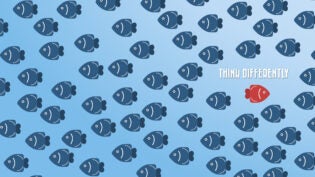How Do Food Entrepreneurs Learn? Check Out These Non-Traditional Methods
By: Naomi Stone

Entrepreneurship is having its heyday. It’s a term on most tongues in most sectors. The same is true of food. Put together, you get a double hot topic.
Across the country, incubators and accelerators are popping up to support food entrepreneurs. New York is leading the charge with the likes of Food-X and AccelFoods. San Francisco is close behind, rocket-fueled by the innovation investment culture of Silicon Valley.
Even in Europe this stream is gaining wide popularity. EIT Food entrepreneurship programs, with their community of successful and fast growing food-related start-ups, are growing deep roots into the traditional European food industry. These programs are impacting food trends in the majority of Champs-Elysees Restaurants in Paris, establishments like the 57 Restaurant & Lounge in Vienna and even Ikigai Restaurant in Kiev.
While some food entrepreneurs may be found in incubators and accelerators, others may not. For at core, entrepreneurship is simply a method for creating, applicable in any field, for any pursuit. And food is unique in that it touches absolutely everything and absolutely everyone. Some industries remain mysteries to the non-initiated. We all get food.
So, whether they are venture-building or not, how do food entrepreneurs learn?
Learning and teaching are no longer two sides of the same coin. What we need to know, from whom, and how have all drastically changed. These days, regardless of what you are looking for, you’ll probably go online. If you want to discuss it, you might use Facebook, Twitter or LinkedIn to initiate or insert yourself into the conversations that speak directly to what’s on your mind.
You learn by seeking (or carving) out digital “watering holes” full of people ready to address a specific problem or topic that matters to you. You frame questions or comments that point at what you want to know and attract others in to engage. Participants enter and exit at will, contributing as they choose. Some of what’s shared will be relevant. Some will not. Roles are blurred: everyone is a teacher and a student.
In traditional education, the teacher-student dichotomy is preserved. (No matter how innovative it aspires to be, education and its culture won’t change until incentives change.) What is desired to be taught trumps what is desired to be learned. The professor drives. The students are passengers: looking out the windows, absorbing and making sense of what they can.
Any set-up grounded in the teacher-student dichotomy won’t work for entrepreneurs because entrepreneurs are drivers. “What am I doing today to move my idea forward?” “Who can help me to answer this urgent question right away?” Entrepreneurs learn by doing, and steering.
Services to support food entrepreneurs need to take more decisive steps toward emulating how entrepreneurs learn online. This is not a plea for more online education, but rather for taking the intelligence of such learning architecture and applying it to offline engagements.
Food entrepreneurs are busy creating. The more personally relevant, real time, and learner-driven their education can be the better. But food entrepreneurs also need each another to see their ideas through. So there’s no substitute for the investment of full presence—in the flesh.
What are the pillars of this new hybrid design?
- Everyone is both teacher and student.
- You don’t know what you don’t know.
- You don’t know who is going to be able to help you.
- The more diverse the network the stronger it is.
- You get more (knowledge, support, buy-in) if you are fully present, in person.
- More often than not, solutions are fragmented with pieces stored inside different people.
Crazy-making as it may be, the Stream has things to teach us. Downloaded to real life, its learning architecture may fuel food entrepreneurship like nothing else can.
1602 Views












